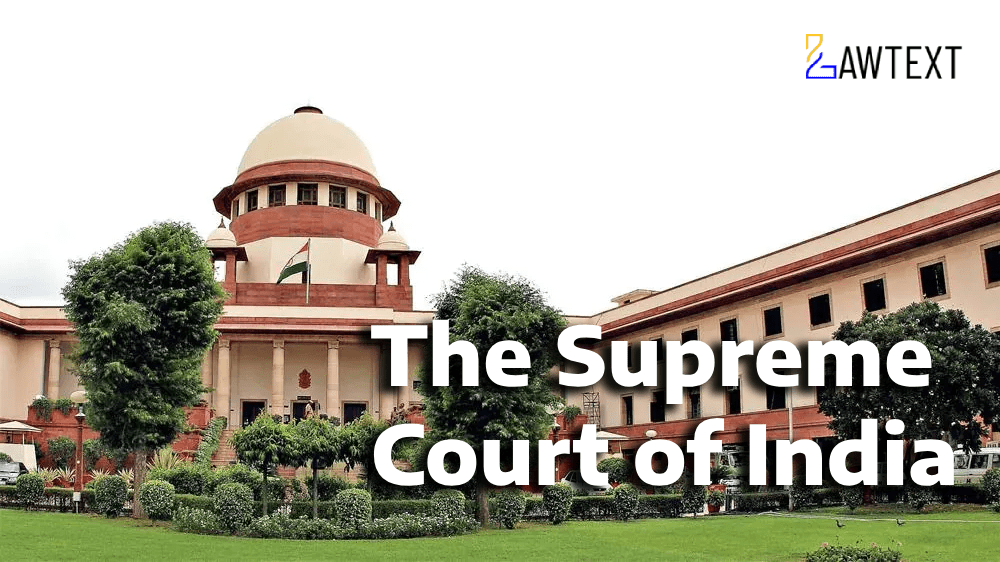

a. Definition of manufacturing process under Section 2(k) includes washing and cleaning for delivery and use – Laundry service falls squarely within this definition. b. Premises employing more than 9 workers with the aid of power satisfies the definition of a factory under Section 2(m). c. The welfare nature of the Factories Act, 1948 requires a liberal interpretation to protect workers’ safety and health. d. The High Court erred in applying the interpretation from the Central Excise Act – Factories Act has its own definition of manufacturing process. e. The order issuing process, though brief, was supported by sufficient material and need not be set aside on technical grounds.
Appeal Allowed – High Court’s Order Quashing The Complaint Set Aside – Criminal Complaint And Summons Restored.
Acts And Sections Discussed –
Constitution Of India (COI) – Article 136 – Special Leave Petition.
Factories Act, 1948 – Section 2(m) – Definition Of Factory – Section 2(k) – Definition Of Manufacturing Process – Section 6 – Approval, Licensing, And Registration Of Factories – Section 92 – General Penalty For Offences.
Goa Factories Rules, 1985 – Rule 3 – Factory Approved Plans – Rule 4 – Factory License – Rule 6 – Application For Registration And Grant Of License.
Employees State Insurance Act, 1948 (ESIC Act) – Section 2(12) – Definition Of Factory – Section 2(14AA) – Definition Of Manufacturing Process.
Subjects:
Interpretation Of Statute – Manufacturing Process – Factory Definition – Laundry Service – Registration And Licensing – Workers Safety – Criminal Complaint – Quashing Of Summons – Judicial Application Of Mind.
Nature Of Litigation: Criminal Appeal arising from quashing of summons and complaint issued under Factories Act, 1948.
Relief Sought: The State Of Goa sought restoration of criminal complaint and summons issued against the respondent.
Reason For Filing: Alleged violation of provisions of Factories Act, 1948 – Non-possession of approved factory plans – No valid factory license – Non-registration of premises as a factory – More than 9 workers employed – Use of power for business activity.
Previous Decisions: High Court Of Bombay At Goa quashed the order of Judicial Magistrate First Class (JMFC), Panaji, dated 04.12.2019, issuing process against the respondent.
Issues:
a. Whether the laundry business constituted a manufacturing process under Section 2(k) of the Factories Act, 1948? b. Whether the premises in question qualified as a factory under Section 2(m) of the Factories Act, 1948? c. Whether the High Court rightly quashed the criminal complaint and summons on grounds of lack of application of mind and erroneous interpretation of manufacturing process?
Submissions/Arguments:
Appellants: a. The activity of cleaning and washing clothes constitutes a manufacturing process as per the plain reading of Section 2(k). b. More than 9 workers were employed, and power was used – fulfilling the definition of a factory under Section 2(m). c. High Court erred in extrapolating the meaning of manufacturing process from the Central Excise Act, 1944.
Respondent: a. Laundry business is a service, not a manufacturing activity. b. No new marketable commodity is produced, and hence it does not amount to a manufacturing process. c. The order issuing process was cryptic and lacked judicial application of mind.
Citation: 2025 LawText (SC) (3) 36
Case Number: CRIMINAL APPEAL NO. OF 2025 (@ SPECIAL LEAVE PETITION (Crl.) NO. 1959 OF 2022)
Date of Decision: 2025-03-03
Case Title: THE STATE OF GOA & ANR. VERSUS NAMITA TRIPATHI
Before Judge: [B.R. GAVAI J. , K. V. VISWANATHAN J.]
Appellant: THE STATE OF GOA & ANR.
Respondent: NAMITA TRIPATHI